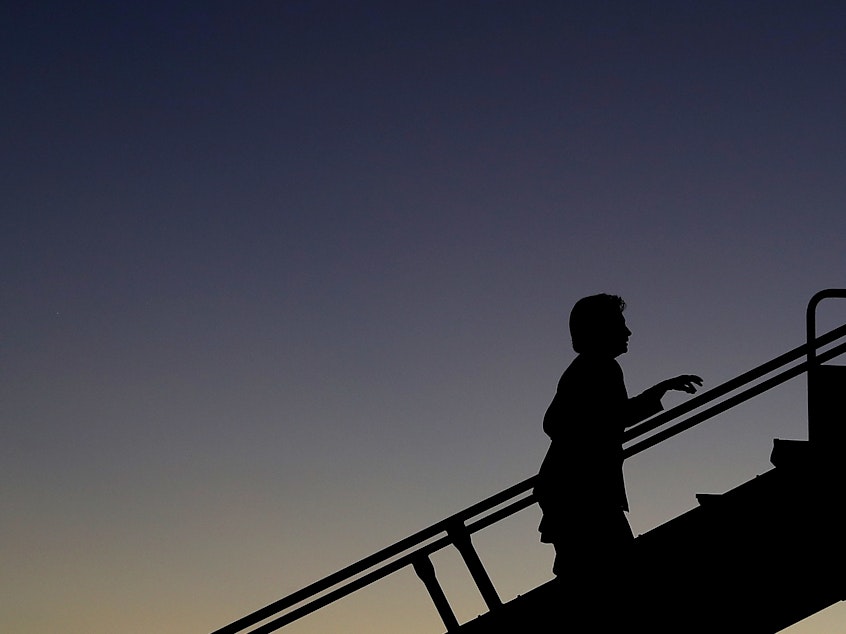Clinton Emails: Closing The Loop On A Prominent Story

I wrote last week about what we in my office informally call "missing stories," those stories that NPR listeners and readers feel have been under-covered. Newsrooms have to set priorities, of course, and they can't cover everything. But this week's "missing story" is a particularly notable omission.
Late Friday, Republican Sen. Chuck Grassley released a letter he had received from the State Department earlier in the week, in which the department said it had concluded its investigation, begun in 2016, into former Secretary of State Hillary Clinton's emails. The quick takeaway from the report, as reported by AP: The investigation found "no persuasive evidence of systemic, deliberate mishandling of classified information." It did find that 38 current or former employees, in 91 cases, sent classified information (some of it classified after the fact) that ended up in Clinton's personal email. Some of them may face discipline.
NPR intensely covered the Clinton email issue prior to the 2016 election. And it covered this most recent development in the 3-year-old saga, but you wouldn't know that from looking at NPR.org, as a reader pointed out to the Public Editor's office. There's no digital story. No newsmagazine report. Astute listeners would have heard reports in six newscasts, at 8 p.m., 9 p.m. and 11 p.m. (all ET) on Friday, Oct. 18, and at 2 a.m., 3 a.m. and 8 a.m. on Saturday, Oct. 19. Newscast transcripts are not archived online, however.
To any NPR news consumer who didn't happen to catch a newscast, most of which were in off hours, this important development in the story is invisible.
Newsroom leaders told me they stand by the decision to cover the story only in the newscasts, given the crush of other important news and an exceedingly stretched staff.
Sponsored
"It was a combination of things: timing and stretched resources and in the scheme of all the news of late, it just didn't rise up to our re-allocating resources. A judgment call, but not one that we would second guess given all the other things coming over the transom," Edith Chapin, NPR's vice president and executive editor, told me in an email.
Sarah Gilbert, NPR's vice president for news programming, added (by email): "That part of the week's news agenda was dominated by reaction to [acting White House Chief of Staff Mick] Mulvaney admitting and then retracting quid pro quo on Ukraine, the Doral G7 announcement and reversal, and the crisis in Syria. In this context, newscast coverage of a 9-page State Dept. report that concluded 'there was no persuasive evidence of systemic, deliberate mishandling of classified information' was adequate."
Are all those other stories important? Yes, and arguably far more newsworthy at this time when the president faces an impeachment inquiry. And the State Department finding perhaps felt anti-climactic, given that the FBI had already long ago closed its own investigation into Clinton's use of a private email server, saying there was no criminal act. NPR covered that at the time.
Those affected most by the new development are the senders of the now-classified emails. That said, as recently as Sept. 30, NPR had prominent reports in both Morning Edition and All Things Considered about how the State Department had revived the probe, contacting about 150 current or former employees whose emails had ended up in Clinton's private email. The net effect of that action, and NPR's reporting on it, was to keep alive an issue that President Trump has used to stir up his supporters against Clinton in particular and Democrats in general.
The end of the State Department's investigation is a final period on the whole saga that got so much attention in the lead-up to the 2016 election. I think NPR has an obligation here to close the loop after three years (or at least on the newsmagazine reports from Sept. 30). Since there's no other report in the NPR online archive, this one will have to do. [Copyright 2019 NPR]
